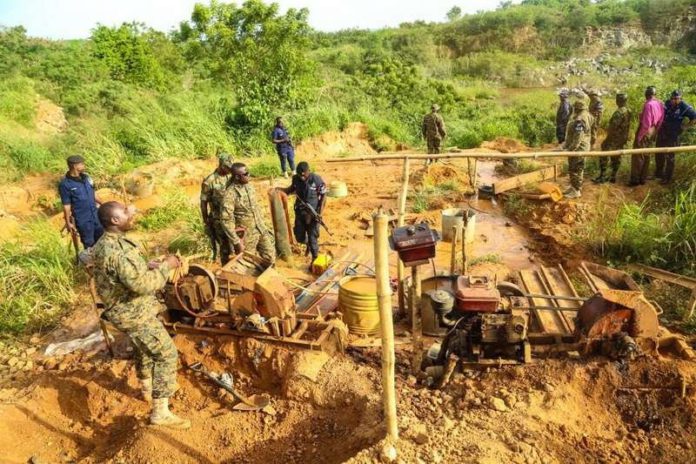A Center for Social Impact Studies (CeSIS) research has revealed residents in many mining communities in Ghana are losing lands, cultural sites and identities, and social ties due to resettlement by companies.
The report also exposed unfulfilled promises, human rights violations, involuntary displacements, and little or no resettlement support systems for residents.
These were contained in research on community experiences of mining-induced compensation and resettlement in the Obuasi Municipality of the Ashanti region.
The report, titled ‘community experiences of mining–induced compensation and resettlement in the Obuasi East and Obuasi Municipality of Ghana’ seeks to influence re-settlement and compensation policies in favour of the community.
Three communities; New Bediem, Dokyiwa and Anwiam were selected purposely for the study.
The study revealed that residents affected by large-scale mining usually complain they have been short-changed because they have no or little capacity to negotiate with multinational companies.
Residents of New Bediem and Dokyiwaa among other things also reported suffering violations of their civil rights (forcibly removed from their homes,) human rights (arrested without cause), economic rights (denied compensation for lost jobs) and social rights (denied compensation for water sources, having to travel farther to reach farmland).
This is because the residents of the mining-impacted communities are unaware of the applicable laws governing resettlement and compensation.
Even for those few who are aware of the laws, they have little or no understanding of the legal frameworks and it has negatively impacted how they engage with Anglo-Gola Ashanti.
CeSIS has, therefore, proposed to the state to empower communities seeking resettlement by building their capacity on compensation and resettlement provisions, key state institutions involved, negotiation skills, compensation principles, policies, procedures and compensation
rates.
“Awareness and comprehension of the current legal and regulatory arrangements
on compensation and resettlement are key to maximizing negotiation, compensation
and resettlement outcomes.
“A citizen version (easy to read) of laws on compensation and resettlement should be
developed and translated into the local dialect to facilitate easy comprehension,” part of the study proposed.
On the part of AGA, CeSIS has called for a resettlement procedure which aligns with the LI 2175 and recognizes the need for monitoring and evaluation of resettlements till mine closure.
The Centre has also recommended that a joint resettlement committee should be constituted on the part of the company to monitor, evaluate and settle controversial resettlement issues and complications arising out of post-resettlement.
ALSO READ:
Read the full report below:

